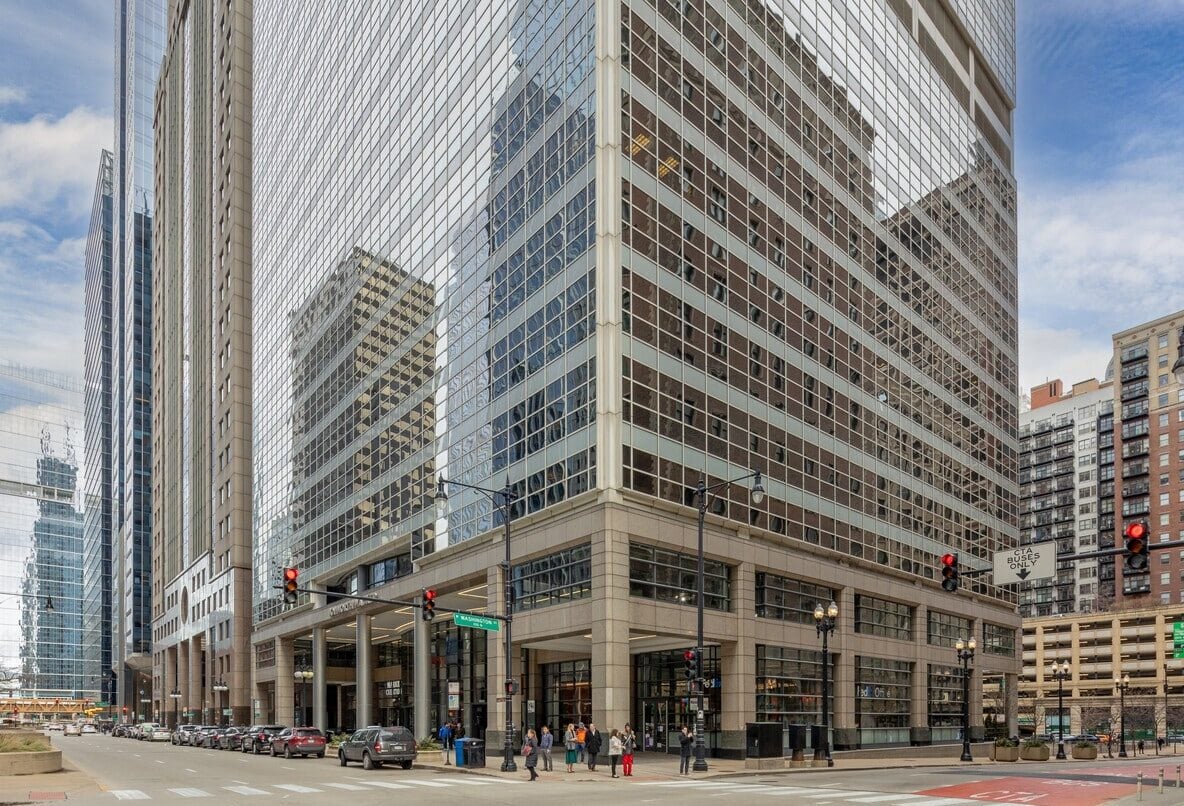FINRA’s Expansion at 101 N. Wacker and What It Means for the Chicago Office Market
In a reversal of a downsizing trends that has defined much of the post-pandemic commercial real estate narrative, the Financial Industry Regulatory Authority (FINRA) has expanded its office space in Chicago at 101 N. Wacker Drive by more than 25,000 square feet. This move brings the regulatory agency’s total footprint to approximately 70,000 square feet, making it the largest tenant in the 23-story building.

This decision starkly contrasts FINRA’s previous move just last year, when it reduced its Chicago office space from 61,000 square feet at 55 W. Monroe St. to around 45,000 square feet as part of a hybrid workplace strategy. That downsizing reflected a broader market shift in the Central Business District (CBD), where a remote work revolution fueled an unprecedented contraction in demand. But this new pivot, an increase rather than a decrease in square footage, signals a quiet, yet powerful shift in how major institutional tenants may be thinking about space usage in 2025 and beyond.
A Welcome Exception to the Rule
For landlords, FINRA’s expansion is a rare win. The Chicago office market has been battered by vacancy rates that reached all-time highs in 2023 and 2024. More than 2 million square feet of office space in Chicago was vacated over the past two years, with major corporations opting for leaner footprints, relocation to more tax-friendly regions, or full embraces of remote-first operations.
And yet, here comes FINRA, defying the trend.

While the organization declined to comment on the reasoning behind the expansion, sources familiar with the matter suggest the move was prompted, in part, by a federal government push for a return to in-office work. President Trump’s executive order in January 2025 demanding federal agencies abandon remote work arrangements may have influenced FINRA, which, while not technically a government agency, operates under the oversight of the U.S. Securities & Exchange Commission.
Whatever the motivation, FINRA’s decision injects a bit of optimism into a market starving for positive momentum.
A Commercial Real Estate Agent in Chicago’s Perspective
Most of all, the expansion solidifies 101 N. Wacker Drive as a viable, long-term home for institutional tenants. Owned by LaSalle Investment Management, the building has faced headwinds like every other office tower in the Loop. After TTX vacated roughly 100,000 square feet last year, relocating its HQ to North Carolina, the building was left with a sizable leasing gap. With FINRA increasing its presence, the property is 76% leased, according to CoStar, bringing it in line with the Loop’s current occupancy averages.
Office Space Transactions Worth Watching
This deal joins a short but growing list of notable office transactions in downtown Chicago that show signs of a slow recovery in flight-to-quality leasing:
115 S. LaSalle St. – A high-profile distressed asset now part of the city’s “LaSalle Street Reimagined” initiative, recently saw interest from development groups looking to reposition the property for mixed-use, including modern office space in Chicago.
123 N. Wacker Drive – Law firm Neal, Gerber & Eisenberg renewed 90,000 square feet in 2024, opting to recommit to the Loop rather than downsize or relocate.
225 W. Randolph St. – Blue Cross Blue Shield reduced their footprint but committed to modernizing their existing space, a sign that firms are not entirely abandoning the city, just adapting to new workplace norms.
Aon Center (200 E. Randolph St.) – Tech tenant relocations and consolidations have left a vacancy wake, but financial and legal sectors remain the bulwark of tenancy here, especially as demand for high-end Class A space persists.
The Capital Market Implications
FINRA’s expansion is also timely for LaSalle Investment Management, which recently amended its loan with Allianz Life Insurance, lowering the mortgage balance on 101 N. Wacker from $116 million to $90 million. While details remain sparse, it is a sign of how building owners are working proactively with lenders amid declining property values.
Market comps suggest that 101 N. Wacker, originally purchased for $210 million in 2014, would fetch significantly less today—perhaps by 30-50%—thanks to higher interest rates and lagging demand. A long-term lease expansion by a creditworthy tenant like FINRA helps shore up the building’s cash flow and perceived stability, likely playing a role in Allianz’s willingness to restructure debt.
Final Thought
The story of 101 N. Wacker Drive is potentially the start of a larger market recalibration. However, whether this is a blip or the beginning of a more significant trend remains to be seen. But in a market where every square foot counts, FINRA’s move is a win worth noting.
If you’re looking to explore or lease office space in Chicago, or are searching for an expert commercial real estate agent to help you navigate this shifting market. Reach out for insights, guidance, and opportunities in a transforming urban core here.

